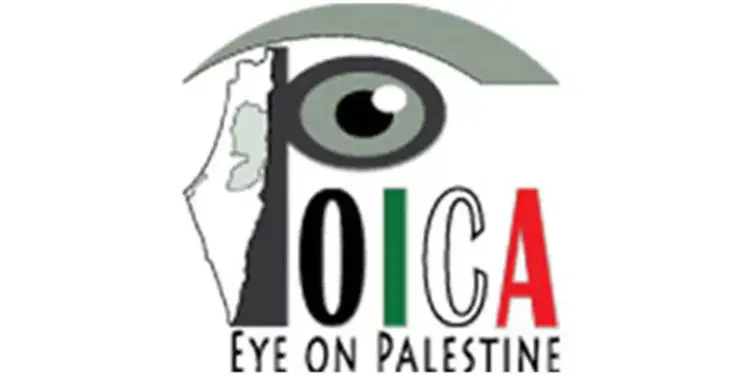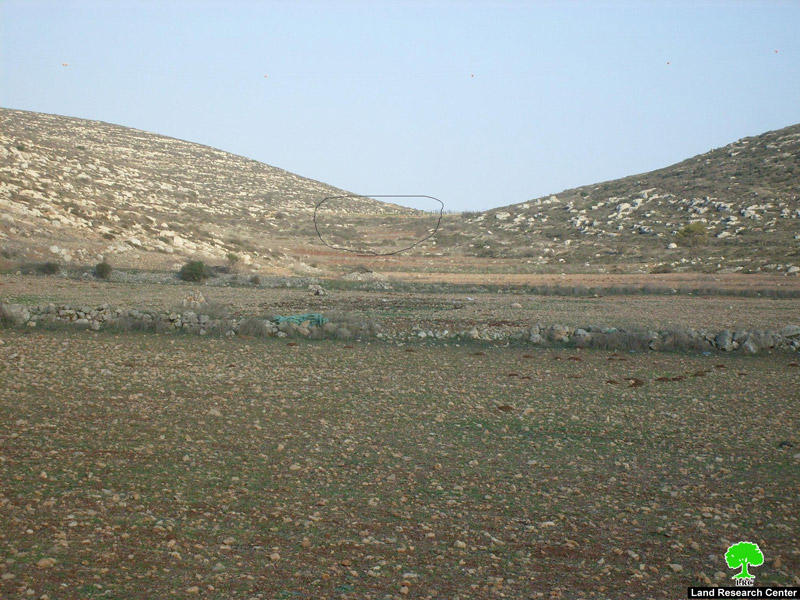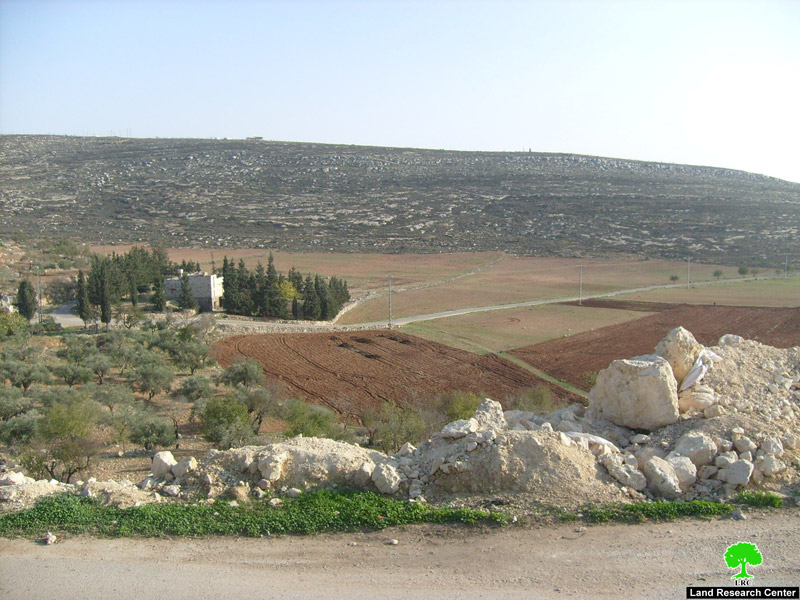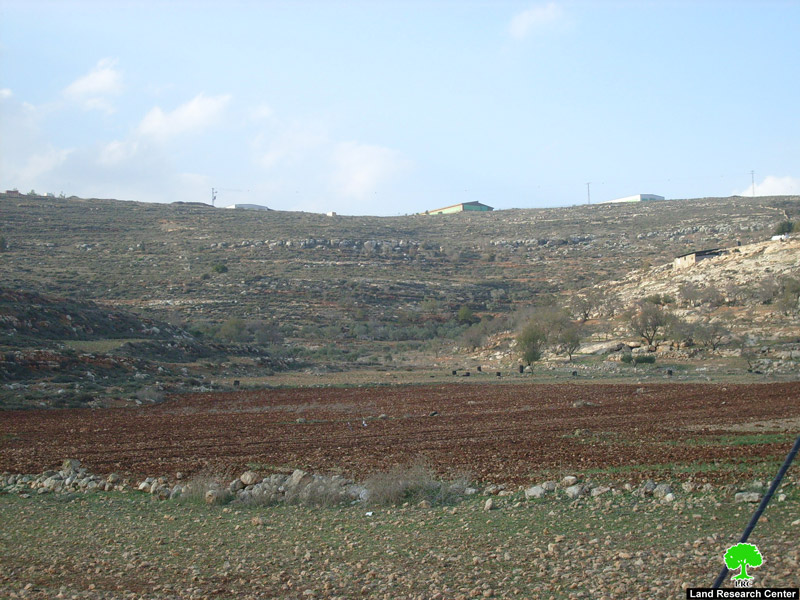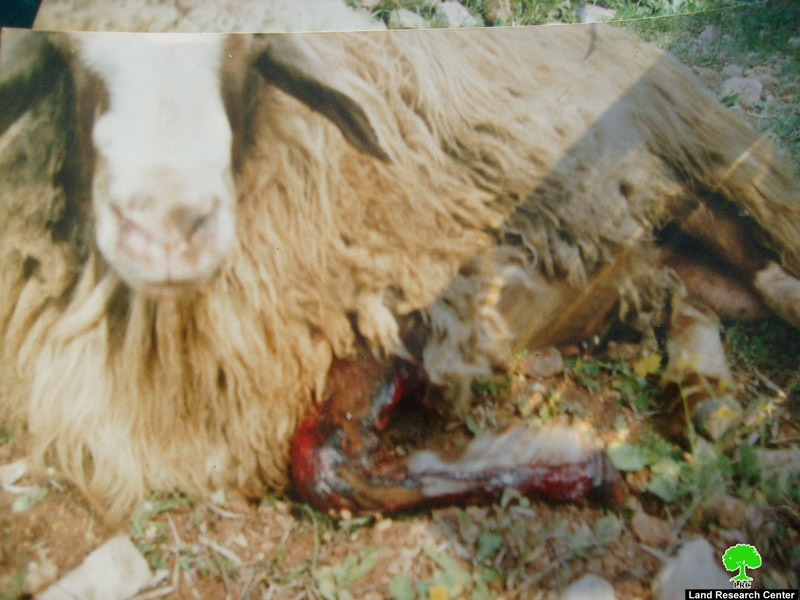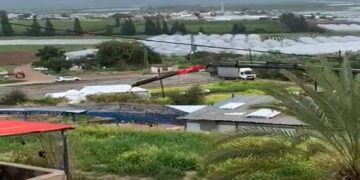Violation: The taking over of 80 dunums of Palestinian lands.
Violators: Gedonim colonists with the help and support of the Israeli Occupation forces.
Date: November 30, 2009.
Victims: farmers of Boshnaq family.
Location: Bab al Faras parcel, Yanun.
Yanun and the Israeli Occupation:
Yanun village and its residents suffer from continuous Israeli threats, especially from the armed colonists groups who roam the area harassing farmers and stealing their crops. These acts are considered part of an Israeli long term plan that intends to clear the Palestinian lands from their original owners. These actions and many others are considered a living example on the brutality and viciousness of the Israeli Zionist colonist occupation which is based on the idea of cleansing the land of its original population and replacing them with colonists. The colonization nucleuses that follow 'Etmar' colony are devouring the village lands and now the village is surrounded from four sides (Gedonim from north and east, Giv'at 'Alam from west, this colony follows one of the most influential and powerful rabbis in Israel, and Etmar from the west).
On November 30, 2009, while the Israeli Occupation Government is claiming that it has stopped all colonization activities except in the big colonies, the lies that they spread become apparent on ground. Colonists from Gedonim, which is built on Yanun lands since 1997, took over 80 dunums of the village land in Bab al Faras parcel in the south eastern part of the village. The colonists plowed the land under the protection of the Israeli Occupation Army. The stolen lands belonged to people from Bushnaq Family.
Picture 1: the lands the settler seized
The head of Yanun Projects Committee, Mr. Rashed Fahmi, 41 years old, stated to the LRC field researcher:' it is not the first time that colonists steal lands. In addition to stealing 80% of the village total area in order to build three different colonies alongside two different outposts, every once and a while, colonists try to sabotage or barricade parts of the villages lands prior to taking them over. In 2005, colonists of Gadonim built a fence around 34 dunums that belonged to me. So, I made several complaints and petitions. As a result, I was able to take my case to the Israeli Supreme Court through one of the humanitarian organizations functioning in the area. The court ruled that the lands belong to me and that the colonists should leave immediately. Nevertheless, during this year's olive picking season, the colonists attacked me and my family while trying to collect the yield. They tried to keep me away and then the Israeli Occupation Forces intervened and threatened to kill me if I do not leave the site at once. That was despite the fact that I went on the time defined by the Israeli Occupation Civil Administration. This goes to show that an enemy as brutal as the Israelis does not even respect his own rules and regulations'.
Yanun village and its suffering:
Yanun is 15 km to the east of Nablus city. There isn't any road network that connects the village to the city except the old road which was renovated only lately. The street leads to 'Aqraba village. The village borders extend to reach 'Aqraba, Beit Furik, and 'Awarta villages. To the east there is Makhola colony and by-pass Road 90. The total area of the village is 16,000 dunums including 1,668 dunums built up area. According to Palestinian official sources, there are 102 people living in the village, most of them belong to Bani Jaber and Marar clans. Some of the residents are refugees originally from the occupied village of 'Ajur which was occupied and destroyed back in 1948. Etmar colony has been expanding on the village lands as it took over more than 503 dunums from the village till now.
The residents depend mainly on agriculture and livestock as the main income sources knowing that most of the remaining areas of the village are grazing land.
Picture 2+3: farmers defying occupation and working on their lands.
There is no water network in the village. As such, the residents depend mainly on the natural well located in the center of the village. There is sometimes a need for getting water from other sources like buying it from nearby villages, especially Qusra. Water becomes so expensive this way; it cost about 15 shekels per m3 which adds to the financial burdens of the villagers. There is only one elementary school in the village and there is no transportation network in the area.
Yanun in the eyes of the occupation:
The plain fields of Yanun made it a target for the Israeli Occupation since the occupation of the West Bank in 1967. The Occupation Authorities intended to take over most of the area in order to build Etmar colony in 1983. In 1997, the Occupation Authorities confiscated huge areas of the village for the sake of the establishment of Gadonim in the north eastern part of the village. Gadonim witnessed huge developments during the first Intifada as it became 5 times larger than it used to be. In 2000, colonists took over the western part of Yanun and built Givat 'Alam colony, which is named after one of the rabbis in the area. This way, the occupation took over most of the village lands and only 2000 dunums (of which 60 % is grazing area) has remained till now and no one knows when will the aggression start over again.
Picture 4: Gadonim expanding on one of Yanun hills
Rashid Fahmi said:' the colonists attacks is nothing new. It started 9 years ago in a well organized pattern. We called for help and support from different humanitarian organization but our efforts were futile. Nobody listened or cared. Now the locals are leaving one by one because they are scared from the daily aggressions. They attack day and night, torch houses, shoot at houses and people, threaten to kill us if we don’t leave, and, worst of all, we are not allowed to build any type of structure in the land that belonged to our grandparents long before these colonists were even born. The Occupation Authorities say that its areas classified 'C' according to Oslo, this gives the Occupation authorities to do whatever they wish in the land and deprive us from our basic needs, which is another reason for immigration.
The colonists' aggressions are proceeding:
Tens of incidents were reported; colonists killed a young man called Hani Marar in 2004. They attacked the house of 'Atef Bani Jaber as they took advantage of his absence and attacked the house where his wife and children were staying; the colonists messed up the house and put a gun in 'Atef's wife head in order to scare her and her children. Colonists also attacked the house of Abdul Latif Bani Jaber and destroyed all his belongings in addition to killing four sheep.
In 2004, the colonists tried hard to sabotage the electricity network in the village; the network construction was funded by the Belgium government who interfered to stop the colonists attempts. Moreover, colonists tried to defile the waters of the main well in the village but their efforts were futile. Even the cattle and their shepherds were included in the colonists' plans, many sheep were killed and several shepherds too only because they were in the area.
Picture 5+6: Even targeting the cattle was included in the colonists’ plans
Farmers of Yanun were not able to harvest their olives this season
Olive picking became bounded with the liberty of Yanun village, people of Yanun depend mainly on farming and olives in their income. During the past years, they could not harvest their olives because of the aggressions against them by the colonists.
Prepared by
The Land Research Center
LRC


